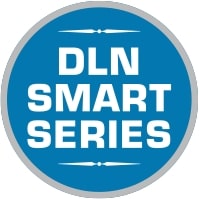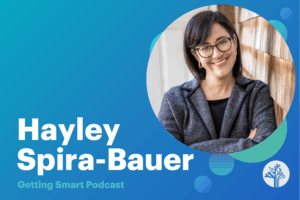Digital Learning Now! Releases Smart Series Paper: 3 Strategies to Fund Computer Access For Every Student

‘Funding the Shift to Digital Learning’ report offers advice for funding high-access environments for all students
Digital Learning Now! (DLN) today released “Funding the Shift to Digital Learning: Three Strategies for Funding Sustainable High-Access Environments,” the first in the DLN Smart Series of interactive papers that provide specific guidance regarding adoption of Common Core Standards and the shift to personal digital learning.
In the last decade, Americans have increasingly embraced mobile technology – smartphones, tablets, laptops, netbooks, and more – for personal use. In the classroom, these tools can be leveraged for content creation, online assessment, collaboration, and the advancement of the Common Core State Standards.
The paper, co-written by John Bailey, Executive Director of DLN, Tom Vander Ark, Executive Editor of Getting Smart, and Carri Schneider, Director of Policy and Research of Getting Smart, asks leaders and policymakers to consider three strategies for investing in student access: state and district-provided funding, subsidized parent pay, and a mixed model, which includes bring your device (BYOD) policies.
“Technology has systematically transformed the way we live, work and play. With the upcoming Common Core assessments and the emergence of high-quality digital content, the growing demand for student devices is changing the face of education,” said Bailey. “This first paper highlights real examples of how states and school leaders are providing their students with the tools they’ll need to access next generation learning opportunities.”
“Every state, district and school needs an effective access strategy to support online assessment in 2014-2015 and support personal digital learning,” said Vander Ark. “The shift to personal digital learning is the best shot we have at boosting achievement and college preparation–and that starts with an effective access strategy.”
“We knew leaders would be looking for ways to fund better student access to technology and wanted to provide guidance based on what we had learned from states and districts that have already begun the shift,” said Schneider. “We found that many are drawing from multiple sources to build sustainable funding that increases access. We expect to see more leaders choosing these mixed models that combine the reallocation of existing state and local funds with technology user fees and ‘bring-your-own-device’ (BYOD) policies.”
DLN plans to release the entire series, which is in partnership with the Foundation for Excellence in Education and Getting Smart, throughout fall 2012 and early 2013. The entire DLN Smart Series will include topics on funding high-access learning environments, building comprehensive learner profiles, preparing for online assessments, moving to competency-based learning models, financing student achievement, building big data policies, improving the teaching profession with blended learning, and more.
These organizations have come together to accelerate the shift to high-quality digital learning for all students by addressing a different implementation challenge with each paper. The papers will be released with an executive summary brochure and complementary materials such as infographics, presentations and more. A forthcoming collection of videos on similar topics will also accompany the series.
Download the full paper, “Funding the Shift to Digital Learning,” and learn more at http://digitallearningnow.com/dln-smart-series/.
Acknowledgements
Getting Smart would like to acknowledge the following for feedback and support: Mark Edwards, Tom Greaves, Jill Hobson, Keith Krueger, Doug Levin, and Jeff Mao. We also want to thank Gov. Angus King for his leadership in Maine’s 1:1 program. We also wish to recognize Foundation for Excellence in Education and its sponsors and donors for their leadership in the shift to personal digital learning.





0 Comments
Leave a Comment
Your email address will not be published. All fields are required.